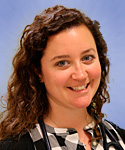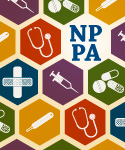August 17th, 2017
Primary Care’s Got Talent
Elizabeth Donahue, RN, MSN, NP-C
There is one hour each day in the office that I refer to as the “golden hour” – from 6:30 to 7:30, either AM or PM. For the sake of my personal life, most days I aim to be at my desk for one of those two slots but not both. During this time, I’m usually alone in the office and I find myself being uber productive; tackling notes and other tasks without distraction.
Last Thursday night, after all the patients and staff had gone, a colleague and I sat at our desks, listening to Dave Matthews Band and charting/chatting away. We got onto the topic of a certain tooth straightening system that rhymes with “shmin-vizza-line” and how we were both considering treatment. We wanted to know where we could see experienced providers for treatment in Boston, so we searched the brand’s website. To our surprise, the providers vetted by the company were ranked in a five-tier system from “preferred” all the way up to “top 1%.” And because I love to ask inane questions that make others go ‘hmmmm,’ I began a quest to pester my coworkers into answering this question: What do you do that would rank you in the top 1% among primary care providers?
 For me, the answer came easily — if my office voted for “pap queen” instead of “prom queen,” I feel I could run uncontested. In fairness, I see a lot of young, female patients, I am a stickler for preventive care, and I’ve covered years of “pap only” visits for male physician colleagues. Therefore, some of this bravado is a direct result of quantity. But still, I maintain that I have a gift for finding a cervix — it can run, it can hide, but I will find it. On one occasion, I even found two instead of one! A septate uterus with bilateral cervices… if that doesn’t qualify for top 1%, I’m not sure what does.
For me, the answer came easily — if my office voted for “pap queen” instead of “prom queen,” I feel I could run uncontested. In fairness, I see a lot of young, female patients, I am a stickler for preventive care, and I’ve covered years of “pap only” visits for male physician colleagues. Therefore, some of this bravado is a direct result of quantity. But still, I maintain that I have a gift for finding a cervix — it can run, it can hide, but I will find it. On one occasion, I even found two instead of one! A septate uterus with bilateral cervices… if that doesn’t qualify for top 1%, I’m not sure what does.
My pharmacy colleague suggested she might fall in the top percentile when it came to insulin management and diabetes control. She is a CDE and a self-proclaimed “type A personality,” so the numbers game of diabetes is where she excels. My NP teammate in the office shared her expertise and confidence in treating chronic pain; she had spent months shadowing specialists, studying guidelines (on cross titration, non-opioid management strategies, etc). In her words, she took something that primary care did not train her well for and “figured it out,” so now rather than being “scared of it,” she can do it well. When I asked my evening charting buddy what she excelled at, she sighed deeply and told me that her special talent was “making my patients cry.” (She has found, sometimes to her chagrin, that she has a way of letting patients open up.) A male physician colleague, always the jokester, responded immediately, “I inhibit that response, that’s my talent!” (An open-concept team room makes for frequent group conversations, but that’s a blog for another day.)
 Finally, one very seasoned colleague, who I’ll call Bob, new to primary care but with years of experience in emergency and hospital medicine, patently refused to answer the question. “I’m so new (to primary care),” he said. “I don’t think anything I do is in the top 1%,” he said. “I’m never answering that question. Forget about it.” Finally, under protest, he gave his answer — that maybe (just maybe) his talent across his years of practice was connecting with the patient quickly and “making them feel like I give a damn.” In response, I told him I might award him the “top 1% in humility.” He laughed sheepishly. I just love that Bob.
Finally, one very seasoned colleague, who I’ll call Bob, new to primary care but with years of experience in emergency and hospital medicine, patently refused to answer the question. “I’m so new (to primary care),” he said. “I don’t think anything I do is in the top 1%,” he said. “I’m never answering that question. Forget about it.” Finally, under protest, he gave his answer — that maybe (just maybe) his talent across his years of practice was connecting with the patient quickly and “making them feel like I give a damn.” In response, I told him I might award him the “top 1% in humility.” He laughed sheepishly. I just love that Bob.
This initially lighthearted question led to a deeper conversation among my colleagues that uncovers for me a few of the beautiful things about primary care. First, you can find a different problem to manage each day behind each exam room door. Also, as a provider, you can choose to hone specific skills — those that interest you, or which demand or trends might dictate — or you can bring a gift that comes naturally to you to each patient you see. And in a team-based care environment, we have the ability to rely on one another’s gifts and talents. To adapt the old adage, “jack of all trades, master of none” to suit my point, I’d suggest that my talented colleagues in primary care are jacks of many trades, masters of some (they just need to be asked which ones … unless you ask Bob, because he’s still not fessing up!)
P.S. Names have been changed or withheld to protect the innocent subjects of my extracurricular pursuits.




Had to send a patient to a geneticist despite a Pap smear done by the GP to determine that she had no cervix! And I’m a psychiatrist.